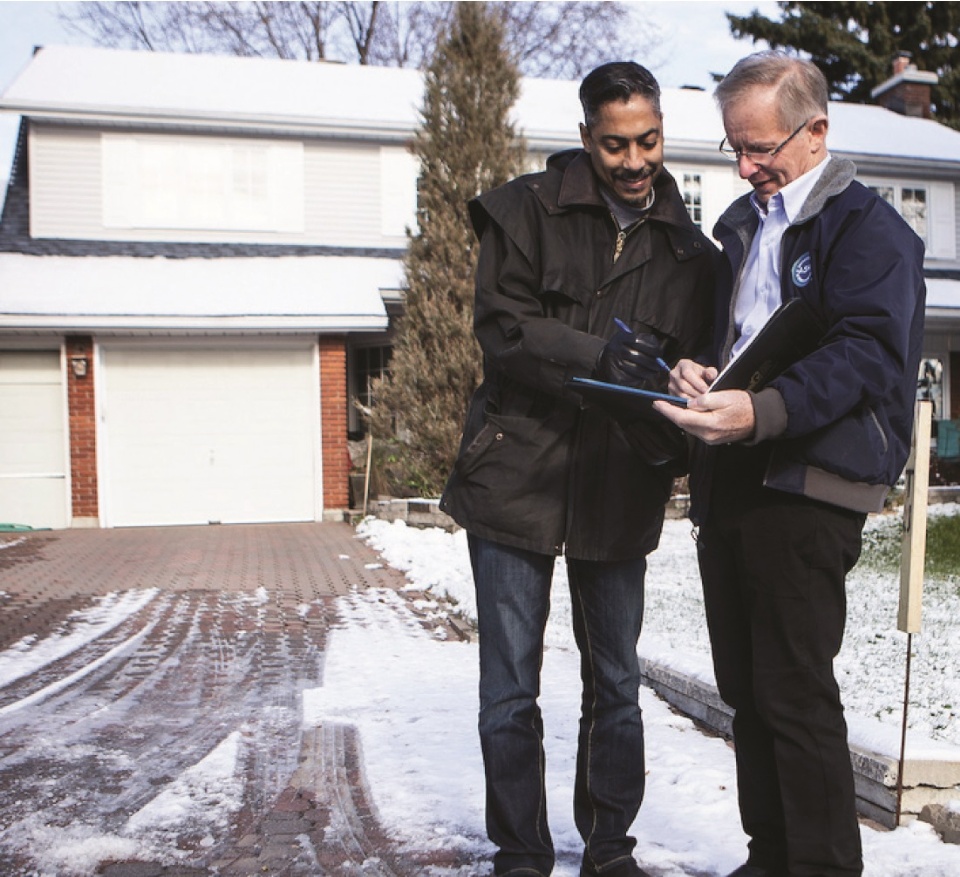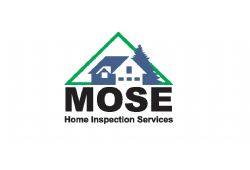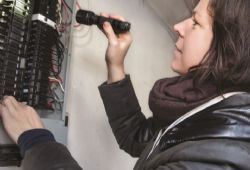A hole in your wallet might mean it’s time to fix the holes in your home! I recently had a gentleman ask me how his electricity bill could possibly be $1000 per month. He asked me to poke around his house to see if I could recommend any energy-saving solutions.
It didn't take long to see the problem—his 1932 heritage building with symmetrical panned windows was absolutely gorgeous, but did little to reduce heating or air conditioning costs for his 2,400 square foot home. Those windows desperately needed updating, but that was not all. His lifestyle definitely added to the big bill. He kept two large water heaters going at all times to ensure long hot showers for himself, his wife and son.
In addition, the building exterior was in desperate need of repairs; there were plenty of gaps in the stone, and very little of the building was insulated.
Before actually inspecting his heating bill, I explained a little elementary mathematics; One square inch of missing insulation costs a homeowner one unit of heat. Therefore, one square inch opening that leaks air costs 100 units of heat. It is extremely important every square inch of the building is properly sealed up.
I learned about how basements are the worst culprits from first-hand experience. It turns out that for every 12 inches (30 cm) of uninsulated basement wall in a home (measured linearly around the basement wall) you will pay about $10 per year in additional heating costs. In my basement, I had 40 feet of bare concrete foundation wall, which I've been telling myself to insulate for the last 25 years. A little mathematics told me I should have gotten to it earlier.
40 linear feet of uninsulated basement
x $10 per year
x 25 years
= $10,000 (Enough for a nice vacation indeed!)
I finally did the work last year. And the basement is a lot warmer!
Hunting down the leaks
Not sure where the leaks are? One sure way to find out is by doing a blower door test. A blower door fan is mounted on the frame of an exterior door and pulls air out of the house, lowering air pressure inside. The higher outside air pressure then flows in through any possible leak, which is detected by special equipment.
A good indicator of how much your house leaks can be evaluated by looking at the level of humidity you are able to maintain. If you are not able to get the humidity over 35<>percentage<> when it is colder than -10 Celsius, then your house definitely leaks and it's financially worth doing something about it. Most pre-1970's buildings will have this problem. Generally, the older the building, the worse the leakage. In the case of the heritage building discussed at the beginning of this article, it was very worthwhile to do a complete thermal imaging of the whole building and a blower door test in order to identify gaps, missing insulation and other leaky areas, especially around windows and doors.
Sealing up your home
Improving the energy efficiency of a home should generally follow these rules;
- Close all the air leaks with caulking and weather stripping (often this can be effective for keeping critters like mice out of the building too!) A blower door test will help identify leaks.
- Ensure sufficient attic insulation. Blown cellulose works well because it is inexpensive and also makes a good vapour barrier.
- Insulate the basement.
- Replace old windows and doors.
- In pre-1960's houses, improve insulation in the walls.
- Update to a modern efficiency heating system. High efficiency gas furnaces are typically 95<>percentage<> efficient.
- If you have an older oil furnace that still has some useful life left, install a heat pump and go on a bi-energy rate. You can get your electricity for half the price.
After that, keeping your bill in check is a matter of being energy conscious.
Do you know how much it costs to toast bread? Read the online version of this article for more about saving money on Hydro, including running your computer, toasting your bread and a calculated reason why you should get rid of your freezer!
The cost of toasting bread
According to Hydro Quebec, the average household's energy consumptions breaks down as follows; (You can complete the energy analysis on the Hydro Quebec website to evaluate your consumption.)
- 54<>percentage<> Heating and air-conditioning
- 20<>percentage<> Hot water
- 18<>percentage<> Appliances and electronics
- 5<>percentage<> Lighting
- 3<>percentage<> other
Tapping into savings
The appliances that use hot water tend to use the most electricity, because heating water requires a lot of energy. Reducing your daily shower by 1 minute can save up to $50 a year, for example. If you switch your washing machine to use cold water, you can also save significantly, and studies show that the temperature doesn't significantly affect the quality of the wash.
Main uses of hot water in the average household are (in order of importance); Faucets, showers, baths and laundry machines. Since 35<>percentage<> of hot water use is attributed to faucets, turning off the tap while shaving or brushing your teeth can also significantly affect the final bill. With the house all sealed up, heating costs can be lowered by 5<>percentage<> by lowering the heat by just 1 degree Celsius. There are a lot of ways to achieve this, including using a timer on a thermostat. Why not lower the heat while you are at work, or late at night, while you sleeping? It's unlikely you will even notice the difference.
Last but not least, you'll save a whole lot of energy in the long term by investing in energy-efficient products. Make sure you buy Energy Star appliances and adding energy saving products like low-flow showerheads and faucet aerators to reduce usage.
It doesn't take long for your bill to plummet with the right attitude and a couple of energy-saving modifications.
At the moment with energy costs fairly low, we don't tend to panic too much, but just ask someone who lived through the 1970's energy crisis, and you'll realize how quickly this problem can put your household costs through the roof—literally.
It's worth taking the time to do an energy-assessment of your household. You could end up saving thousands of dollars.
Need help finding the leaks in your home? Call Mose Home Inspection Services for an energy consultation. Find and seal those leaks, and start counting your savings!

 In The Latest Issue:
In The Latest Issue:






 BY:
BY: 

Tweet
Share